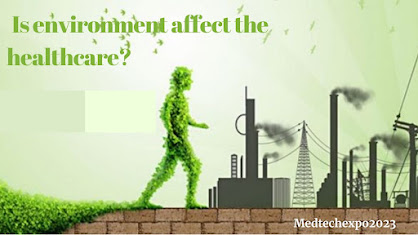From the quality of the
air you breathe to the condition of the roads you drive on, environmentalfactors can have a major influence on your health. What’s more, these factors
have evolved considerably over time, due to both natural and human-caused
events.
A
clean environment is essential for human health and well-being. At the same
time, the local environment can also be a source of stressors - for example air
pollution, noise, hazardous chemicals - that negatively affect health. The
health of the country population is also adversely affected by climate change,
through heat waves, floods and changes in the distribution of vector-borne
diseases. At a broader level, climate change, loss of biodiversity, and land
degradation can also impact on human well-being by threatening the delivery of
ecosystem services, such as access to freshwater and food production.
The Following eight key environmental factors that
affect health:
·
Chemical
safety
·
Air
pollution
·
Climate
change and natural disasters
·
Diseases
caused by microbes
·
Lack of
access to health care
·
Infrastructure
issues
·
Poor
water quality
·
Global
environmental issues
Maintaining a healthy environment is
essential for helping people live longer and for enhancing their quality of
life. Consider a sobering statistic from Healthy People, which notes that 23%
of all deaths (and 26% of deaths among children ages 5 and younger) result from
entirely preventable environmental health problems.
Air pollution is the single largest
environmental health risk in Europe, and is associated with heart disease,
stroke, lung disease and lung cancer. Exposure to air pollution is estimated to
result in over 400 000 premature deaths in the countries each year. Exposure to
hazardous chemicals is also a key concern. People can be exposed to a wide
range of chemicals in their daily lives, via polluted air and water, consumer
products and diet. The properties of certain hazardous chemicals cause them to
persist in the environment and bio accumulate in the food chain, which means
there will be a considerable time lag before reductions in emissions translate into
reduced exposure. national and international level
to build the knowledge base on the linkages between the environment, health and
well-being. This includes work to explore how the environment contributes to
human well-being, as well as work on exposure to and the health impacts of
specific environmental stressors including air pollution, noise, chemicals and
climate change. However, there are also emerging issues for
which environmental pathways and effects on health remain poorly understood.
These include issues such as anti-microbial resistance, or changes in human
exposure to chemicals in products as we shift towards a circular economy and
increase recycling.
Public
health professionals are on the front lines of informing the public about the
environmental factors that impact personal health, community well-being, and
quality of life on a daily basis.
Through educational outreach and
advocacy, they inspire individuals and communities to take actions that help
safeguard their local environments, protect their families’ health, and support
policies that promote environmental stewardship.





.jpg)
.jpg)
.jpg)
.jpg)

.png)